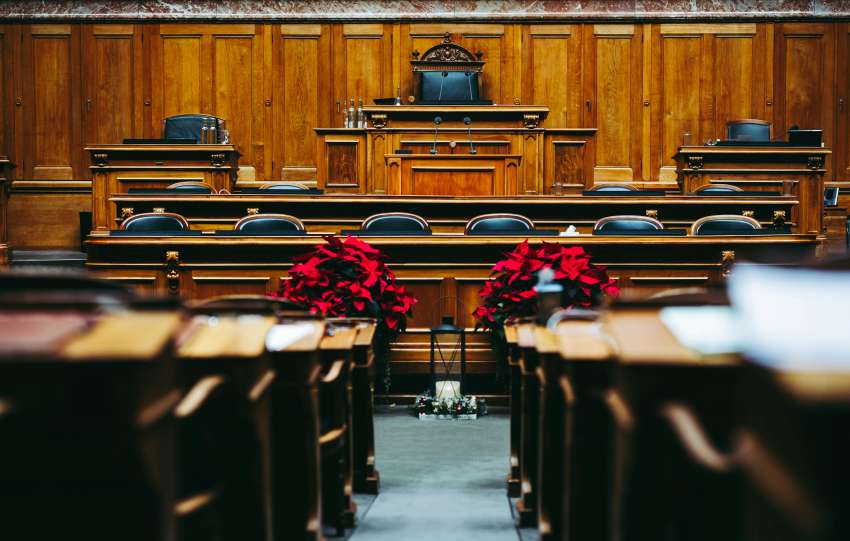Share This Article
Alex Malouf reflects on his cultural heritage and the political situation in Lebanon.
There’s a saying in Sydney’s Lebanese community; “Anyone with the means or money to get out, did so a long time ago”.
Whenever I used to meet with my grandfather’s side of the family for a celebration or big get-together, conversation would always circle back to talk of Lebanon. The well-lined faces of my Pa’s cousins, or relations far more distant than that, always turned solemn at discussion of the old country. There’s a great sense of lament, even among those who have never been back, an element of mourning for the people we’d lost contact with, drifted apart from, or worse.
There’s also no small amount of gratitude, though. A notion that we’re the ones who escaped, that we should thank our lucky stars that we’re the few who got away to somewhere better. Even as they reflect on the country they left behind, they have nothing but thankfulness for the one they live in today.
Even the most cursory glance at Lebanon today is enough to reveal why.
Little over a year ago, a large stockpile of ammonium nitrate exploded at the port of Beirut in a blast that rocked the capital city. Killing 218 people outright and laying waste to some of the city’s most (relatively) prosperous districts, along with nearly all port infrastructure, it was met with outrage within the country itself and an international outpouring of sympathy.
As destructive as the blast was, however, it is merely a symptom of the broader issues plaguing the small Mediterranean state. The anatomy of the disaster at the port is a microcosm of the slow rot which has gutted Lebanon for decades now.
From incompetent bureaucracy to corrupt officials and security staff, ministers unwilling to take blame and a government lacking any sense of transparency, accountability or justice, the events preceding the Beirut blast had them all. The official version of events, that a Moldovan-flagged ship deposited the load of highly explosive nitrate, meant for “fertiliser”, and conveniently ordered via untraceable means, reeks of attempts at blame-shifting and scapegoating by higher-ups. The dangerous chemicals were then left unchecked for 7 years, to decay and grow more volatile, only hundreds of meters away from civilian housing.
Perhaps most damning of all, however, is that the vessel’s original manifests listed 2,754 tonnes of material, while only an estimated 552 exploded. A 2020 FBI report concluded that had the full amount still been in the hangar when it detonated, the entire city would have been annihilated, and the death toll unimaginable. The Lebanese government quietly agreed with this assessment.
Naturally, an inquest was promised, but there will be no accountability. The government announced a “complete and thorough” probe in the immediate aftermath, but this was never going to happen. The first judge assigned to the case was promptly fired after asking the right questions to the wrong officials. His replacement has so far been completely unable to secure relevant testimony from law enforcement, security personnel and members of parliament. As it stands, the investigation is dead in the water.
The entire sequence of events, while appalling to any international observer, is standard for the Lebanese people. For decades now, they have been lied to, misled, exploited and cheated by successive governments which have promised an end to corruption, to terrorist meddling in state affairs and to the continual decline of their republic. For decades, they have been met with more of the same as their political class enriches themselves at their own expense.
These are issues which have beset Lebanon for generations and have their roots in the larger political climate of the region. Firstly, there were the Ottoman Turks, who exploited the Levant for its resources, denied it autonomy and peddled religious divide between the region’s Christians and Muslims. Then came the haphazard delineation of the modern state’s borders by the British and French at the end of WW1, encircling widely disparate ethno-religious groups or dividing tribes along arbitrary lines, ensuring a future of dispute and disunity. Wildly disparate groups were forcibly integrated with one another, and conflict and mistrust flourished.
While there was, for a time, a workable peace between the Christian minority and Muslim majority in the country, this wouldn’t last. As Turkey to the north and Israel to the south began to fund and arm Muslim and Christian radical groups respectively, violence was soon to follow. These tensions would erupt in 1975 into the 15 year-long Lebanese Civil War, which ravaged the country and led to 1 million refugees, many of whom came to Australia. Only after foreign intervention was an uneasy peace brokered between the numerous combatant factions, though the conflict’s underlying causes were never addressed and persist to this day.
This is not to excuse the government of Lebanon, however. The culture of cronyism which pervades the democracies of the Middle East is at its strongest here, and while in the past civilians have been willing to overlook it for the sake of stability, even that measly end of the bargain is being abandoned. An enduring economic crisis, currency collapse and drastic ‘shock’ changes to the government are all now coming to a head. A week ago, the Lebanese central bank announced that fuel subsidies would be halted, causing mass panic buying across the country with prices expected to at least quadruple.
Fights over basic supplies are now becoming commonplace on the streets as what little national unity remains is ripped apart by the urge to prepare for whatever comes next. Scenes such as those in this video, where two men fight over gasoline before spilling it across the street, are a regularity in population centres across the nation. As the NYT detailed this week access to medicine has become a luxury that few can afford, and Beirut itself has begun to experience mass blackouts as flows of water and power come grinding to a halt.
All this is compounded by the political chaos within Lebanon’s government. Crushed under the weight of joint sanctions from both the EU and US for collaboration with the Hezbollah group and aid sent to Syria’s Bashar Al-Assad, the government is paralysed in its response to the economic and social calamity. Leaving aside the domestic apathy and corruption which has brought Lebanon to the brink, international pressures ensure that there is effectively no way out of this national tailspin for the beleaguered Lebanese people.
Meanwhile, the port of Beirut remains a smouldering wreck. Leaving aside the matter of repairs, government officials are still unsure if the remaining unexploded nitrate was blown out to sea or taken for more sinister uses. The port lies abandoned, a quiet, somnolent ruin, a mocking reminder of the prosperity it once brought. An unspoken monument to the farcical nature of the modern Lebanese state.
Who is to say what comes next? Strategists in neighbouring states have already begun floating the prospect of a civil war, three decades after the previous one, and the refugee influx this would entail. Foreign aid seems unlikely, and the chances of revitalisation from within the country itself are beyond zero. We diaspora, the lucky ones, spread across the world as we are, can only look on in sadness, anger, and an unspoken thankfulness at our escape. The tragedy at the port is reflected in only the magnitude of failure across the country at wide, as Lebanese leaders seem unable to halt the nation’s charge towards the brink.
Image: Pexels




